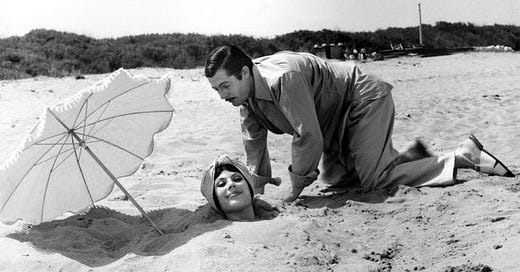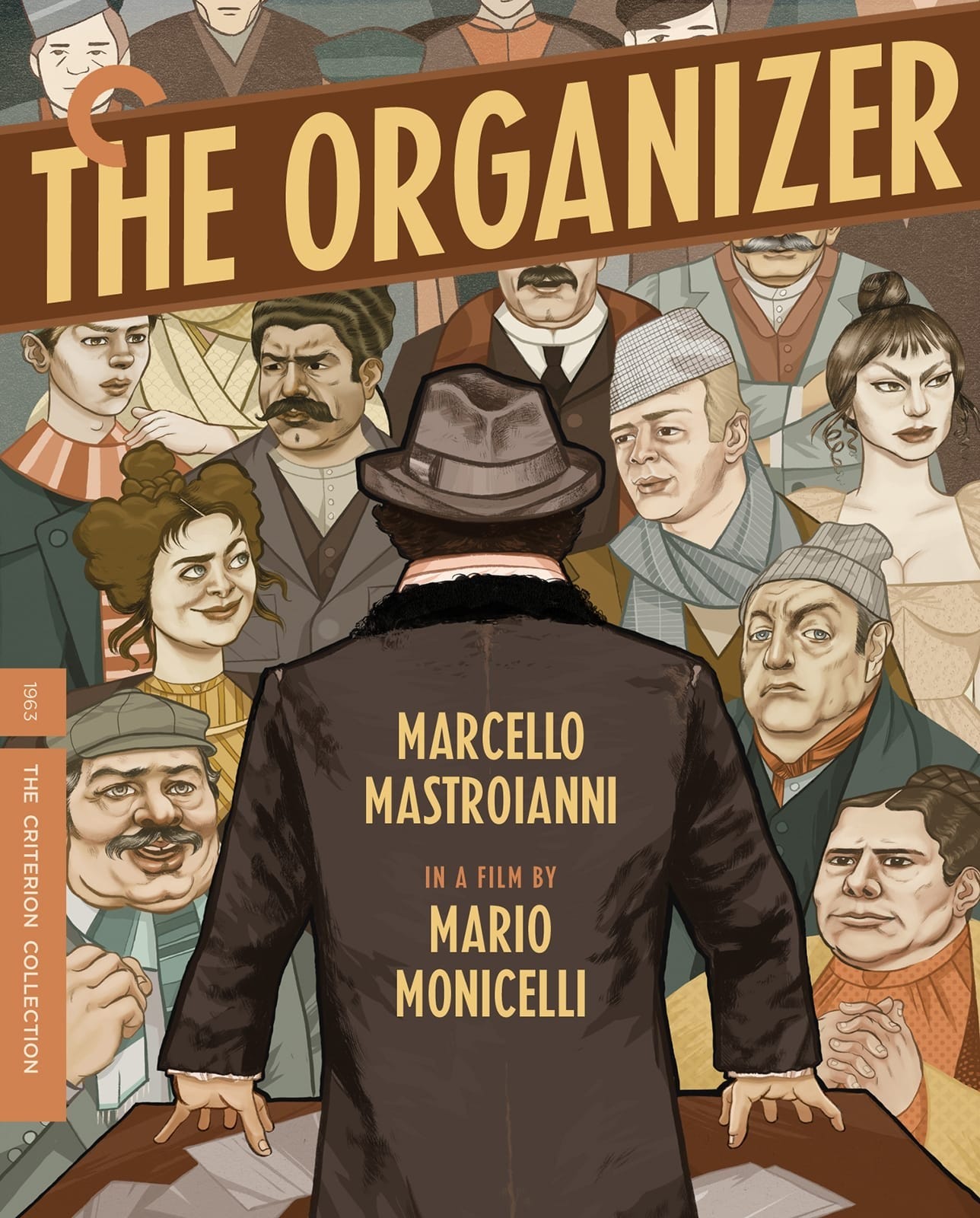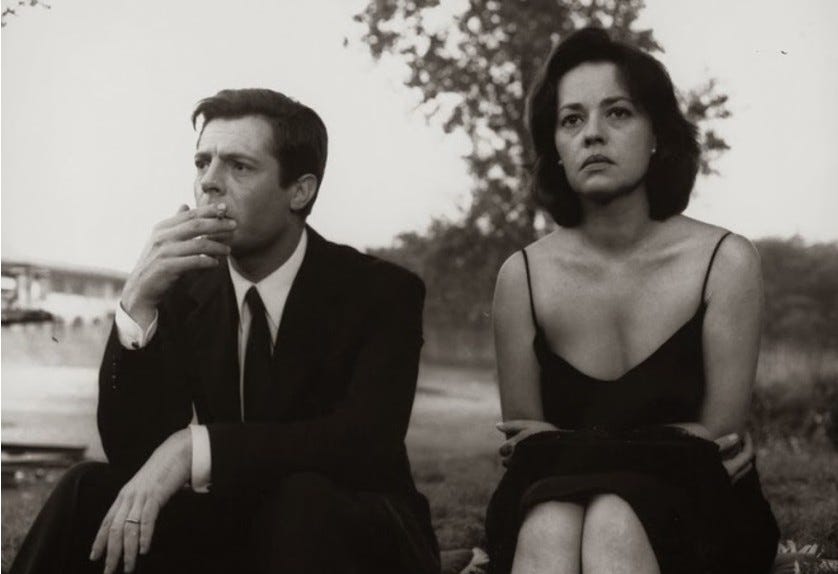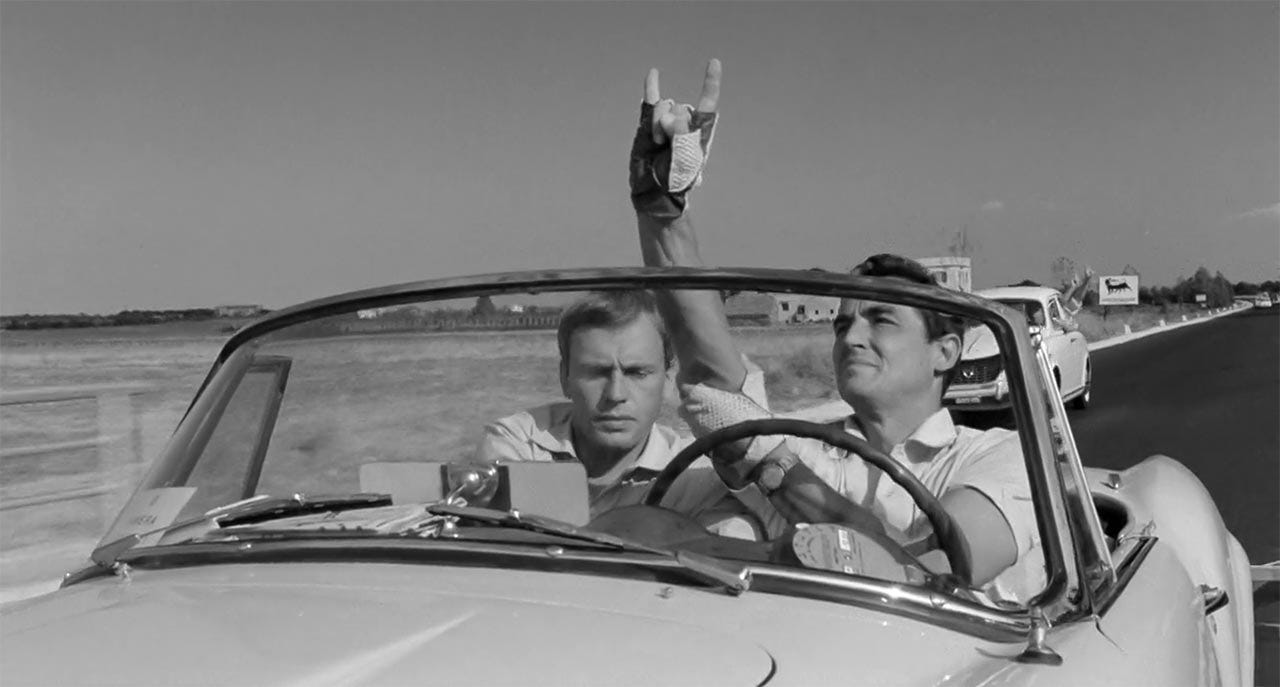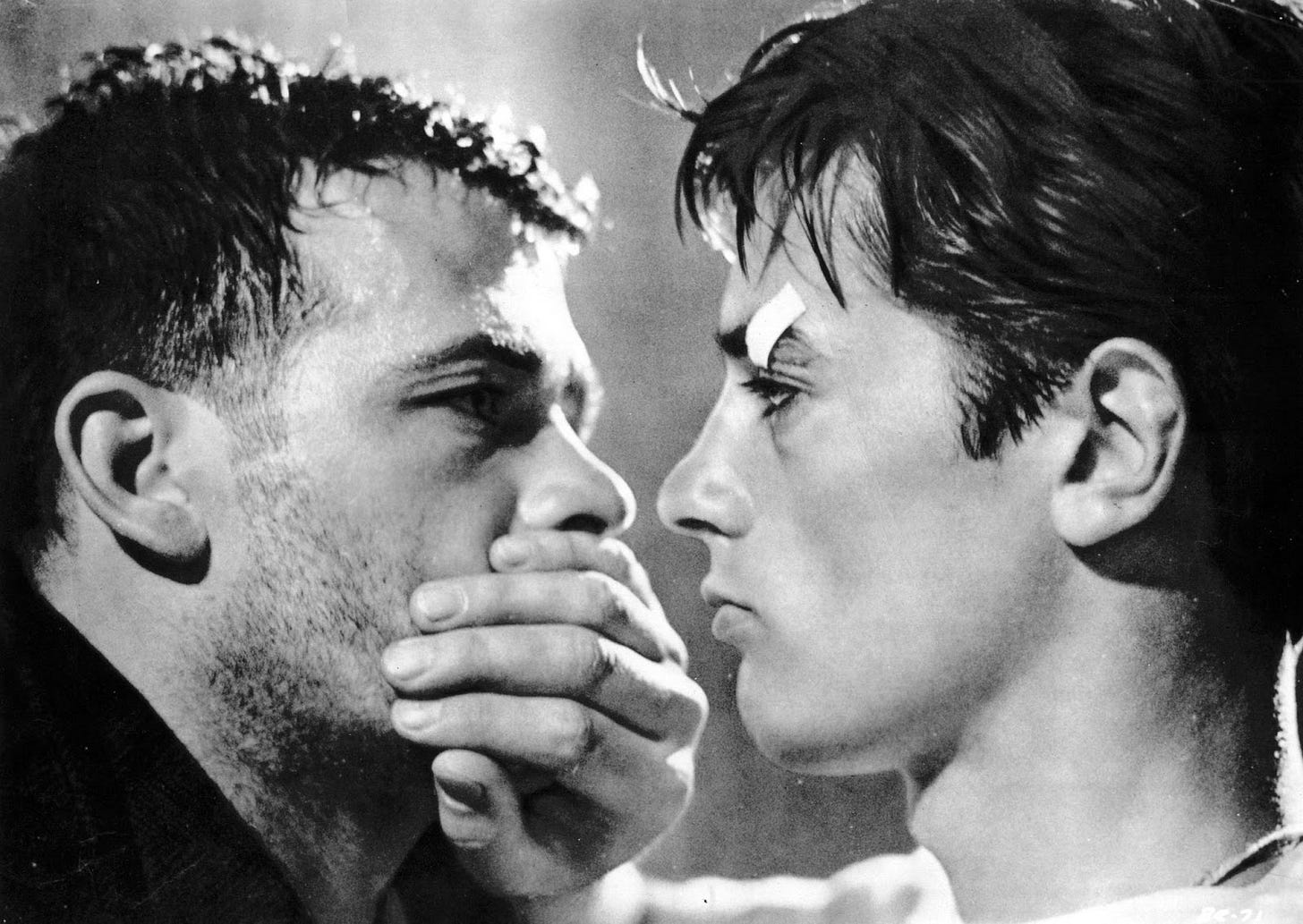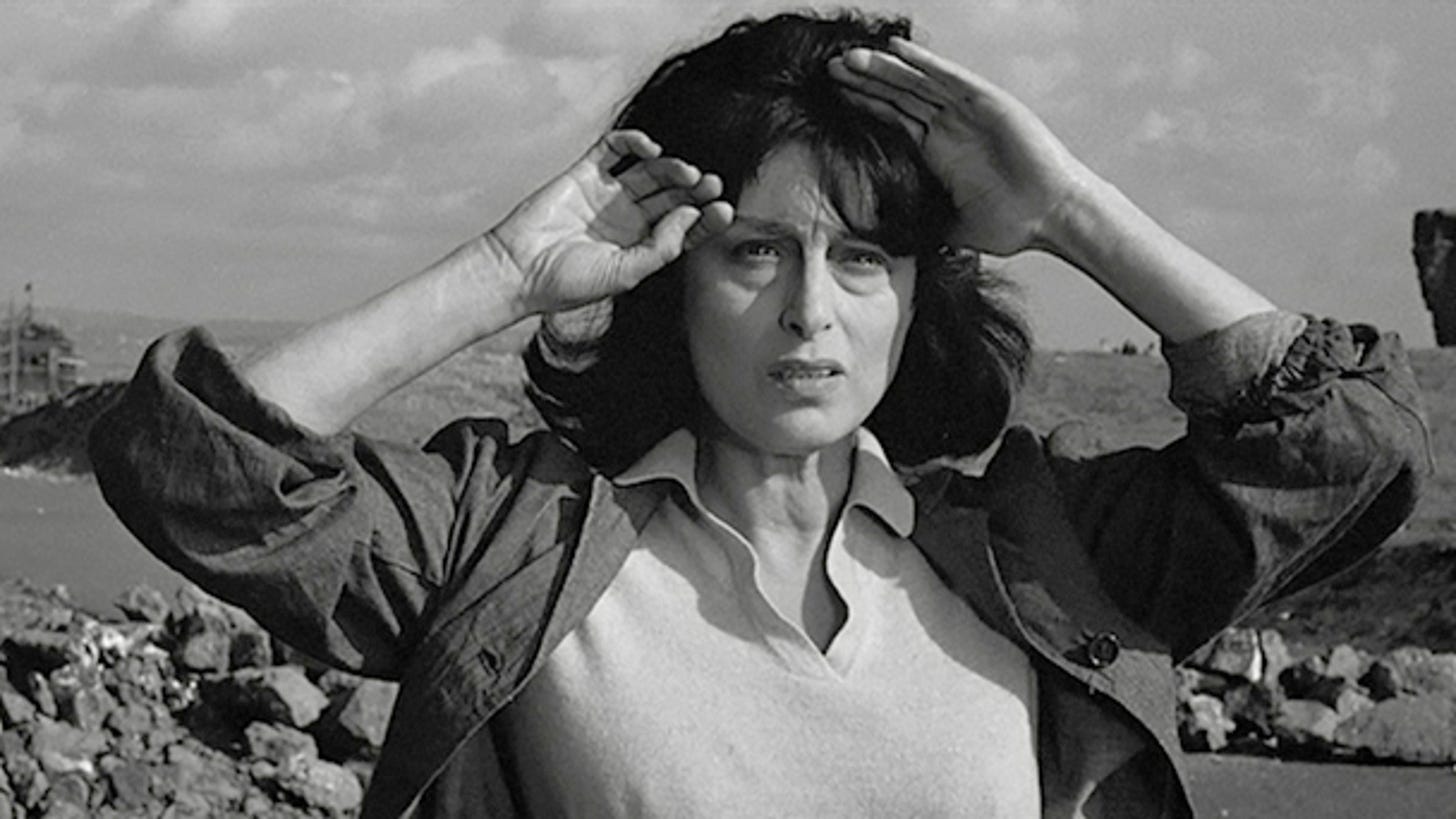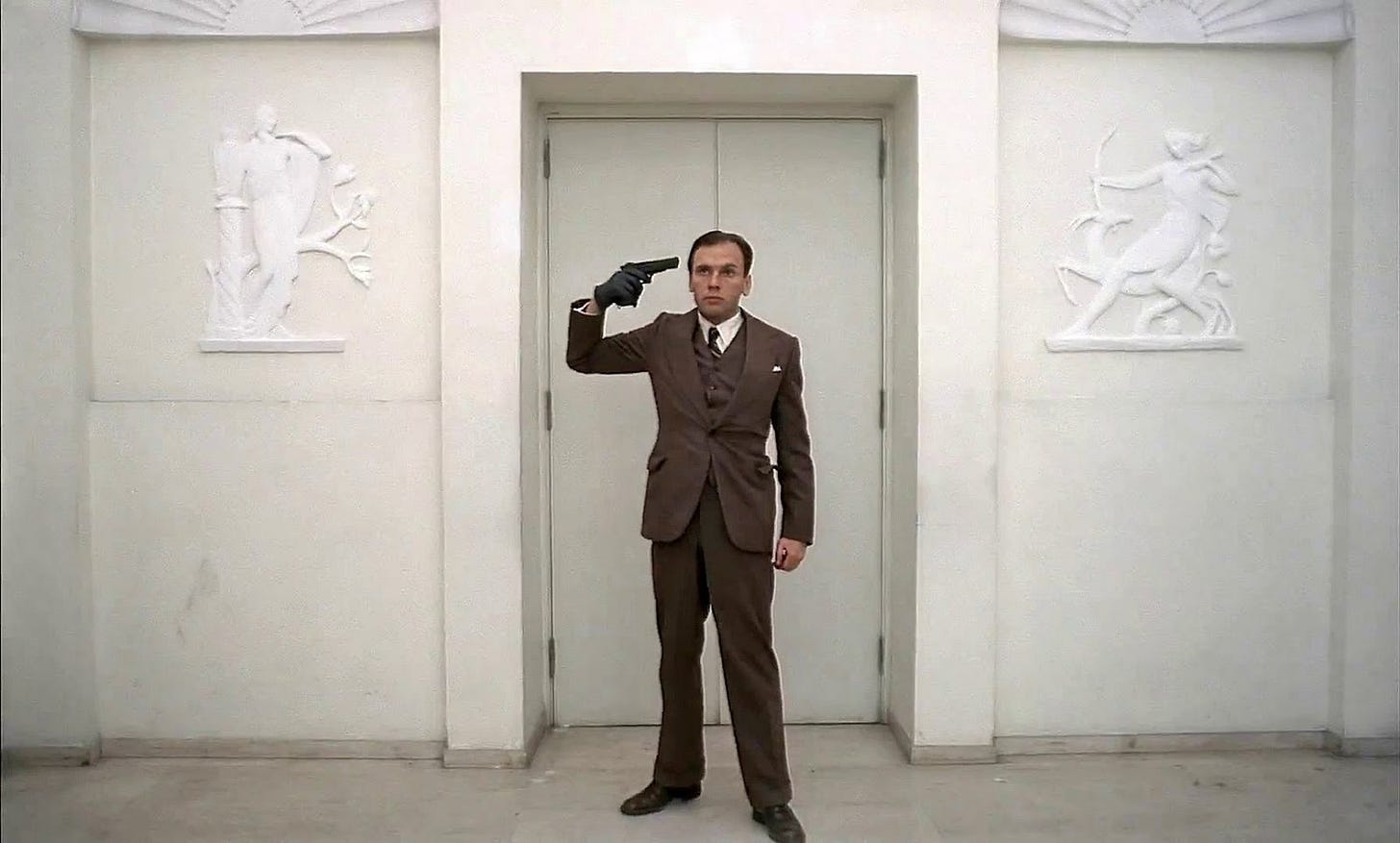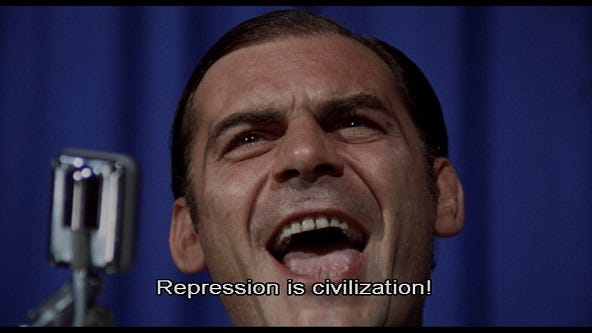Talking With Greg Olson About His Upcoming Film Series: Viva Italia, Radioactive Tarantulas, and David Lynch’s Reading Habits
Greg Olson has made a life of the movies. The former SAM film curator turned independent programmer has spent over 40 years presenting thoughtfully curated dreams to Seattle audiences. Olson’s expertise includes the films of David Lynch, Federico Fellini, and the black and white sleuths of the Film Noir genre.
Beginning February 28, and again every Wednesday evening until mid-April, Olson, in conjunction with Festa Italiana, will present nine Italian films at SIFF’s Uptown Theater. All but one of the movies are from the 1960’s and 1970’s. The period, which Olson describes, as a “golden age” for Italian filmmaking, was a time when long-standing traditions like church and family were being turned on their head. The Italy of the past was forced to look itself in the eyes and ask, “Who are we now?” Mussolini was in the crypt. Art had gone pop. And the pill would soon be legal. Viva Italia!
Trevor: Two of the movies in this series, including opening night’s Divorce Italian Style, are shown in 35mm. Given the advances in digital restoration, why is it still important to present some movies in real film?
GREG: At my core, I'm a film purist. I have to say, though, the seven digital restorations that we are showing are just amazing. Almost all of them are from the various collections. Some are from Cinecittà, the place where Fellini made his iconic La Dolce Vita. Some are from the Bernardo Bertolucci Foundation. For Rocco and His Brothers, the restoration was done by Gucci and Martin Scorsese. So digital or otherwise, these are all top-of-the-line technical presentations.
What are some of your first film memories?
Oh gosh. Well, seeing the 1951 A Christmas Carol from Britain. The one where Alastair Sim plays Scrooge. I remember seeing that as just a tiny little child. I was also a surfer. So all the true surf movies as well as the earliest rock and roll movies. Things like Gene Vincent, and Elvis's movies. Plus I've always been a giant horror, Sci-Fi, and fantasy fan, both in books, but especially in movies. So I grew up with all the radiation-enlarged tarantulas. Pretty much all the bad vibes that came from the nuclear intrusion into our world.
Are there any particular moments at the movies after which your life would never be the same?
I remember the Friday Kennedy was killed. It was just the big three networks back then and the Kennedy killing was the whole topic every day and every night that week. Everybody and everything at the time was just very dark. Eventually, I just couldn't take it anymore. So I got in the family car, drove into Bellevue, and saw this thing called 8 ½. I had no idea that people could live their lives that way. It was an absolutely transcendent and formative experience. It was like, ‘There are other ways other than living as an American in the world? People really dress that nicely and carry on with other women like that?’.
Was it kind of a way of travel for you?
Maybe spiritual travel, but other than that, not really. I mean I've always appreciated the travelogue function of film, but it's not my major theme. You know you do get directors like Michelangelo Antonioni who are like poets of landscape. They have this sort of expressionistic way with light and shade. You’ve got things like the shape of giant concrete modernist buildings juxtaposed with the tininess of human beings. And how this kind of indicates the emotional tone of the people in the movie. But I wouldn’t say travel through film is a big motivator for me.
Besides 8 ½, what other Italian movies had an outsized impact?
Il Sorpasso, The Easy Life. Do you know it?
No.
Well, it’s in this series and I'm very pleased that I’ve been able to get it. In that movie, it's a hot afternoon in the early 60s in Rome. Everybody's out at the beach or whatever, and there's a lonely law student in his apartment wearing his white dress shirt, hitting the books. He goes and takes a breather and comes to the window. And right then and there, this wild sort of classical Italian male in this Lancia sports car comes roaring up and stops because there's a water tap right there at the side of the road. So this guy gets out of the car, gets a big drink, and a bunch of the water spills down his front. Then he sees the law student up at the window and he says, “Hey, you got a phone? Can I make a call, please?” The movie stars, Vittorio Gassman, as the sports car driver, and they end up roaring off in that sports car for wild adventures down the road. Sun, fun, booze, women, dancing, music. Just another example of a creative way to approach life.
It's beautifully shot, and, like so much of Italian culture, there’s the bright surface but there’s also nuance and the balancing between dark and light.
For example, the law student is having a great time, but there are indicators in the movie that maybe he isn't going to totally change his life. Or maybe even his life isn’t going to be changed at all by this experience. The whole thing remains a beautiful hanging question at the end of the film.
In what ways did the golden age in Italian cinema differ from what was going on in America?
I remember the term “youthquake”. Which was a term the media came up with for the reality of what was going on during the 60’s. The terms make me think of the Paris uprisings in May of ‘68. And the French New Wave filmmakers coming along who were all deeply philosophical writers before they became filmmakers. I think it would be safe to say that at that time period, or maybe any time period, Italian culture could be seen as more traditional than French. I mean especially in the way French culture leans more towards secularism and Italian obviously not so much.
But it's not like Italian filmmakers started making youth movies or something in the ’60s. And now for some reason, I’m thinking about Dante, and the feelings of the road, the journey of life. Whether this one or of the afterlife. Also things like romantic love, and how it can kind of be a portal to divine love and guidance. And also the importance of female energy. In the 60’s and 70’s, at least in Western civilization, I think there was a realization of maybe, gee, life's kind of tough. You know like, we had just come through the Holocaust. We had just seen the horrors of humanity right up in our faces. Minds were being stirred up all around and people were beginning to ask, “Am I living the right way? Should I examine my values and maybe find some other ways to do it?”
Were the traditions coming from the Catholic church and the Italian family, or somewhere else?
Family with a Capital “F” is such a huge part of Italian culture and film too. But I don't know enough to be able to say that for sure. What I can say is that I think there had been film festivals before, but in that time specifically, film festivals were really proliferating. There were also a lot of film publications, journals, magazines, books. More people were reading about various filmmakers from different countries. People like Satyajit Ray in India and Kurosawa in Japan.
Would I call it a “cultural renaissance?” I don't know. But I would certainly call it a cultural reexamination. What the Italian filmmakers of that time did was rather than getting moody about existence like some of the existentialists in Paris, they found a way to inject bits of joy and positivity.
I have not been to Italy. I'm kind of a case study, in that I know a lot about the place, relative maybe to some Americans, but, it's all through movies, and books.
My college roommate and his family were Italian American and I was very close with them. So one thing I picked up on about Italian culture is their love of spectacle and exuberance. That's where the passion with a Capital P of Italian cinema comes into my head. The passion of living life.
That is not to say that things can’t be deep and tough. But it’s important to ask ourselves, what do we have to lose by trying to be a little light-hearted about it?
Are these nine films in Viva Italia a good starting point for an American audience?
They're made by real Italians. Written and photographed by real Italians. And the music is composed by real Italians. So I think so.
There's not a single Fellini film in this series. Was it deliberate to omit the most known guy?
Oh, yeah, because not only did we rent the Seattle Art Museum to do the Fellini series right when COVID came along. But we also did a two-part Fellini at SIFF just last spring. As a curator, I don’t like to repeat myself that frequently.
Why was it important to start with a tribute to Marcello Mastroianni
Throughout my career, I was frustrated that I could never put together enough titles on film to do a Mastroianni series. Obviously, if I was going to do all Mastroianni I could add the Fellinis, but I just thought starting this series with a tribute was a really nice calling card to start things off.
What do the three Marcello films say in conversation with one another?
There's a term I've come to learn in my readings about Italian culture: “Commedia All'Italiana.” It is kind of like Film Noir but with a comic twist.
You may know this already, but my other claim to fame is that I have the longest-running English-language Film Noir series in the whole world–44 years, last fall. So I know my noir.
There's this wonderful kind of parallel between noir and Commedia All'italiana. And I know it sounds drastic to say it that way because people are not slinging around in trench coats on rainy streets at night and driving around in black sedans. But it's a feeling that there's darkness in human beings and in human nature. There’s spitefulness, ill-will wished on others, and a dark worldview. And these films, the comedias, they acknowledge that.
So when we’re all sitting there watching, it kind of feels like all of us sinners are sitting together. We may have all these shortcomings that we're not proud of, but these amazing imaginative directors and writers, they just make us laugh out loud about the whole damn human comedy.
How do these films and these directors specifically resonate with Seattle audiences in 2024?
At SAM, film was always seen as the bottom of the artistic totem pole. I had to do so much lobbying and self-justification. Sometimes at night, I would look over from Downtown in the direction of the SIFF Uptown and just wonder “What if?”.
When I did Fellini with SIFF last spring, I couldn't believe it. I had the youngest audiences of my whole career. They just ate it up like crazy—rediscovering, seeing for the first time, seeing for the 8th time. It was just, “Wow!”
How did you go about building such a strong relationship with Cinecittà?
Have you ever heard of the British filmmaker, Michael Powell? He made The Red Shoes and Black Narcissist. He's actually going to be an upcoming series of mine. We were pen pals near the end of his life. One day I thought, he really deserves a tribute. So I proposed it to SIFF and they paid for it all. That was 1989. Michael died a year later.
Anyway, Michael was married to Thelma Schoonmaker, Martin Scorsese's triple Oscar-winning film editor. She's edited everything that Marty has done, starting with Raging Bull to his most recent, Killers of the Flower Moon. She’s become a lifelong friend of mine. So, over all the years, whenever she isn't toiling for Marty, she comes out and does programs with me. It was through that connection, I got connected to Scorsese's private film collection And of course, he's close to Cinecittà in Rome.
Your friendship with Lynch, your love of Fellini's films–would you say you gravitate to the surreal and the dreamlike?
I guess I really love imaginative creators. People who come up with their own myth systems. People like George Lucas. In terms of art history, people like William Blake. People who sort of posit spiritual worlds that are also our day-to-day world. People like Walt Whitman.
When I first read about Lynch, I was just fascinated by his spiritual side. He was raised a Christian but then took up Hindu philosophy back in the 1970s. It’s not just meditation either. He's a deep reader of the Upanishads and the Vedas. This is all stuff that is in my book that's coming out at the end of February.
Take for example the last season of Twin Peaks, the return in 2017. It's not like he's teaching point-by-point lessons in Hindu philosophy, because he's way more subtle an artist than that. But the influence of his spiritual side is deeply felt.
Can you say more about your own reading habits?
I grew up as a kid discovering Edgar Allen Poe and H. P. Lovecraft. But then I also fell in love with poets of the everyday. People like John Updike. Uptike was a huge hero of mine.
What about your parents? What were they like?
My parents were European immigrants. Mom was from Russia, Dad was from Sweden. I hate this kind of stereotypical overview thing, but Dad was more of a bread-and-butter realist kind of guy, whereas Mom's head was full of Russian fairy tales. She had a sort of a more Italian, more voluble, hand-gestured way of expressing emotions. You always knew where mom stood on a topic. She did not play it cool or close to the chest.
Do you eat popcorn?
No.
Why not?
It’s probably because of the art museum. They wouldn't let anybody in with food or drink. Some people, many people, would sneak stuff in. Stuff like Vietnamese food. But then others would come up after the show to me and say, “Greg, what the hell was I smelling in there? And then they would want me to go grab that guy, and lecture that guy. With all the thousands of film shows I've done, I hate the expectation that I should be a traffic cop for other people's behavior.
With Fellini last year, starting my run at SIFF, after talking up their wine and beer and coffee and tea, I did manage to grab myself a cup full of plain water. I think it was Ovid who said, “Poets should only drink from clear streams.” I'm being jokey here. but I do live my life that way.
Greg Olson’s Viva Italia!: The Passion of Italian Cinema begins February 28th. Buy your tickets here or at the box office.
